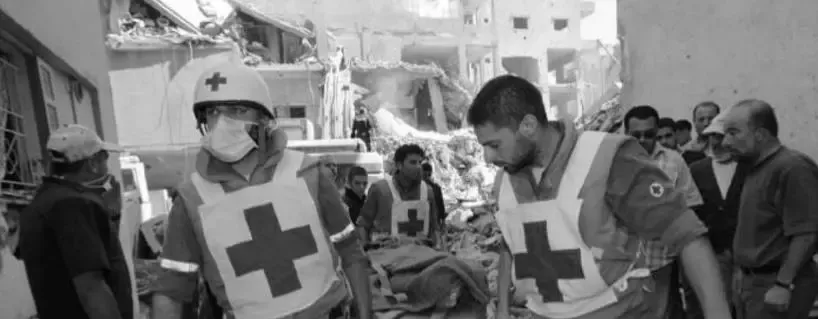 Photo: n/a
Photo: n/aHealth assistance in humanitarian crisis
The course prepares you to work in disasters, health crises, and other resource-limited settings.
About the course
Participants gain practical tools for planning and implementing humanitarian health interventions, as well as an understanding of key principles in global health and the humanitarian system. Through theoretical components and simulations, you will develop the ability to assess health needs, manage acute situations, and navigate ethical and organizational challenges in complex contexts.
Objectives
The course is aimed for healthcare professionals preparing to work in disasters, health crises and other contexts where resources are lacking. The course aims to provide the participants with concrete tools that enable them to participate as humanitarian health assistance staff.
After the course you will be able to:
Knowledge and understanding
- explain the humanitarian context and principles for humanitarian assistance
- describe the main components of a health system
- explain the global health situation and factors that determine variations and summarize strategies relevant for improving global health, focused on communicable and non-communicable diseases, sexual and reproductive health and child health.
- describe important components of response in WASH, logistics and shelter from a health perspective
Skill and abilities
- identify, interpret and summarize information related to the interrelationship between hazardous events, vulnerable populations and health outcome
- plan for healthcare programs and response aiming for reduced morbidity and mortality, taking limited resources and contextual challenges into account
- through simulation exercises, handle emergency situations related to mass casualty incidents, communicable diseases, pregnancy and obstetric complications.
Judgment and approach
- valuate and compare different health strategies aimed at maintaining people’s health during disasters and health crises
- reflect on ethical dilemmas and challenges related to stakeholder collaboration in the planning and implementation of international humanitarian health interventions
Content
The course basis is the global health situation and determinants for health. It illustrates how context and different types of disasters affects public health. The course also gives insight in the humanitarian landscape, actors, structures as well as contextual and ethical challenges that may arise.
The course highlights health strategies aimed at reducing morbidity and mortality and provides concrete tools for planning and implementing humanitarian health assistance.
The course comprises a total of eight weeks (estimated to 12 credits), of combined campus- and distance-based learning.
The course focuses on humanitarian health assistance from the following core areas.
- Global health, disasters, health crises and humanitarian health assistance
- Communicable diseases, epidemic outbreaks
- Sexual and reproductive health and child health
- Injuries, non-communicable diseases and mental health
- Coordination, planning and ethical dilemmas
Teaching Methods
Interactive lectures, discussion seminars, case-based project assignments and clinical simulation exercises.
When and where
Dates: The course starts on September 14 and ends on December 11, 2026.
Course venue: Karolinska Institutet, Campus Solna, Stockholm, Sweden and distance stuides.
The full schedule (subject to change) in PDF-format.
Target group
Licensed healthcare professionals and other professions who aim to work within the field of health response in disasters.
Course Managment
Anneli Eriksson, course leader, RN, PhD, Research specialist, Centre for Research on Health Care in Disasters, Department of Global Public Health
Saskia Tommos, MSc in global health, project coordinator
Participating teachers
Johan von Schreeb, MD, Professor Global Disaster Medicine, Department of Global Public Health
Martina Gustavsson, RN, MSc, PhD candidate
More information
For questions about the course content:
Anneli Eriksson, course leader, Karolinska Institutet, Department of Global Public Health
E-mail: anneli.eriksson@ki.se
For administrative questions:
Kristoffer Mörtsjö, project coordinator, Executive and Professional Education at Karolinska Institutet
E-mail: Kristoffer.mortsjo@ki.se
Registration
If you are going to take the course via Médecins Sans Frontières, please register your interest on Médecins Sans Frontiéres website.
If you are interested in applying to this course but are not a staff member of Médecins Sans Frontières please contact Kristoffer Mörtsjö, kristoffer.mortsjo@ki.se for more information about the registration process. The price for the course is 40 000 SEK, VAT may be added.
